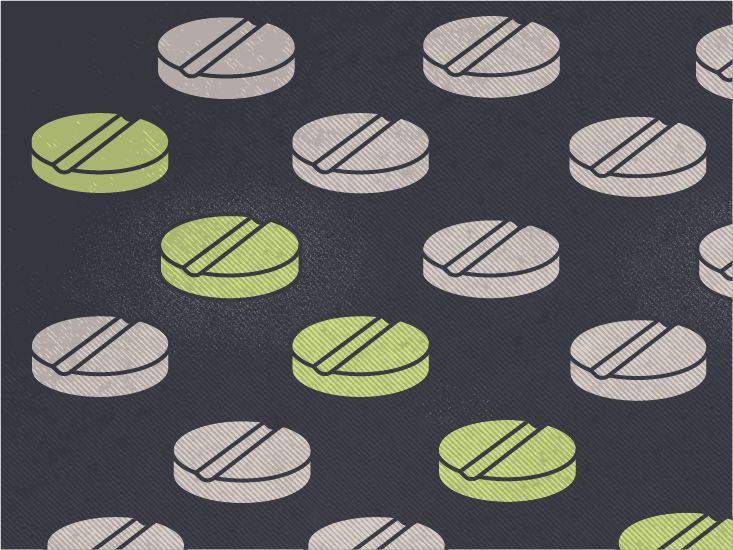Understanding ADHD and Associated Difficulties
ADHD, short for Attention Deficit Hyperactivity Disorder, is a common neurodevelopmental disorder estimated to affect around 9.4% of children. The core symptoms include difficulty paying attention, excessive hyperactivity, and impulsive behavior.
While ADHD cannot be cured, various treatments are available to manage symptoms. This includes medications, therapy, education plans, and natural supplements.
Common ADHD Symptoms
The key characteristics of ADHD include:
- Limited attention span
- Distractibility and disorganization
- Excessive fidgeting and restlessness
- Impatience and impulsive actions
- Forgetfulness and difficulty following instructions
These symptoms can lead to various problems academically, socially, and at home. Getting an accurate diagnosis is key to accessing support services.
Can Focus Drops Help Manage ADHD?
Focus drops are liquid supplements claimed to boost concentration, ease hyperactivity, and calm impulsive behaviors. But do they really work for ADHD management?
Focus drops may contain various active ingredients like:
- Amino acids
- Herbal extracts
- Vitamins and minerals
- Nootropics
Some key benefits touted by focus drop manufacturers include:
- Improves attention, alertness, and clarity
- Reduces hyperactive and impulsive behaviors
- Enhances learning and memory recall
- Balances and stabilizes mood
While focus drops show promise for supporting ADHD treatment, more research is still needed on their efficacy and safety, especially in children.
Focus Drop Ingredients for ADHD
Some active compounds in focus drops thought to aid ADHD include:
- Amino Acids: L-tyrosine and L-theanine may increase alertness and concentration.
- Bacopa: An herb shown to reduce restlessness and improve cognition.
- Zinc and Iron: Mineral deficiencies are associated with attention deficits.
- Vitamin B6: Believed to influence brain neurotransmitters like dopamine and serotonin.
- Nootropics: "Smart drugs" like alpha-GPC may enhance learning abilities.
Are Focus Drops Safe?
Active ingredients in focus drops are generally considered safe at appropriate doses, especially under medical supervision. However, potential side effects may include:
- Headaches or dizziness
- Upset stomach
- Sleep disturbances
- Irritability or mood changes
- Allergic reactions
Interactions with other medications are also possible. Discuss trying focus drops with your child's doctor first.
Standard ADHD Treatment Options
While focus drops may help, standard ADHD treatments with more scientific backing include:
Prescription Stimulants
Medications like Adderall, Ritalin, and Vyvanse are effective at reducing hyperactivity and improving focus. But side effects include appetite loss, headaches, and potential for abuse.
Non-Stimulant Medications
Drugs like atomoxetine (Strattera), clonidine, and guanfacine extended-release (Intuniv) also treat ADHD symptoms. They may cause fatigue, stomach discomfort, or dizziness.
Behavior Therapy
Cognitive behavioral therapy helps teach organizing skills, anger management, and overcoming negative thinking patterns that impact ADHD.
Education Support System
Individualized education programs, 504 plans, and school accommodations provide learning support and modifications to help students with ADHD succeed.
Lifestyle Changes
Regular exercise, sufficient sleep, a healthy diet, and reduced screen time also help safely manage ADHD impairment for some individuals.
Most experts recommend integrative treatment plans that are tailored to each childs needs and challenges.
Other Natural Remedies for ADHD Symptoms
Aside from focus drops, other complementary ADHD remedies include:
Essential Fatty Acids
Omega 3 fish oils may reduce hyperactivity and boost focus. Flax, walnut, and soybean oils are other good sources.
Probiotic Supplements
Altering gut bacteria may influence brain function. Some studies show probiotics calm restlessness and compulsions.
Melatonin
For ADHD kids who struggle with sleep, melatonin improves sleep onset and quality to minimize daytime symptoms.
Green Oat Extract
Preliminary studies found this plant extract reduced distractibility and restlessness in children with ADHD.
Zinc
Zinc deficiencies are more common in those with ADHD. Supplements may help reduce hyperactivity and impulsivity.
Discuss any natural ADHD products with your pediatrician first for safety and dosage guidance.
Tips for Safely Using Focus Drops
If you want to try focus drops, keep these tips in mind:
- Read the ingredients carefully to avoid potential allergens.
- Follow the dosage on the label based on your child's age and size.
- Time doses appropriately, avoiding late afternoon or evening.
- Shake well before use and administer drops directly into the mouth.
- Store in a cool, dry location away from direct sunlight.
- Monitor your child closely and watch for any worrisome reactions.
Focus drops should never be shared or misused. Always supervise your child when taking focus drops or any medication.
Use Focus Drops Cautiously
While focus drops show some promise for aiding attention and behavior, many products on the market are still unregulated with limited evidence backing their use, especially in children.
It's best to view them as a supplemental support, not a stand-alone ADHD treatment. Work closely with your child's pediatrician to find the right balance of therapies tailored to their needs.
Setting Your Child Up for Success
If your child struggles with symptoms of ADHD, early intervention and consistent management strategies are key. Some tips include:
- Establishing structure through schedules, routines, and reminders
- Using verbal and visual cues to capture their attention
- Dividing tasks into smaller, achievable steps
- Allowing movement breaks to outlet hyperactivity
- Giving positive reinforcement for effort and good behaviors
With compassion, creativity, and professional support, you can help your child thrive with ADHD!
FAQs
How do focus drops work for ADHD?
Focus drops contain ingredients like amino acids, herbal extracts, and nootropics that may help improve concentration, memory, hyperactivity, and impulsivity in those with ADHD.
At what age can you give a child focus drops?
There is limited safety data on focus drops for children under age 6. Follow the manufacturer's recommended minimum age, and check with your pediatrician before use in young children.
When should you take focus drops for ADHD?
For help focusing during school, take focus drops in the morning with breakfast. Avoid afternoon or evening use as they may disrupt sleep. Follow label directions.
Can you build a tolerance to focus drops?
With regular use, the effects of focus drops may diminish over time as your body gets used to them. Cycle dosage as recommended to avoid building tolerance.
Do focus drops have side effects?
Potential side effects of focus drops include headaches, dizziness, nausea, irritability, sleep problems, and allergic reactions in some cases. Discontinue use if any worrisome reactions occur.
Disclaimer: This article is for informational purposes only and does not constitute medical advice. Always consult with a healthcare professional before starting any new treatment regimen.
Related Coverage
Learn about getting an ADHD diagnosis, treatment options like stimulant medications, and how to safely purchase affordable ADHD drugs online legally....
Explore safe and legal options to get Strattera online amid ADHD medication shortages. Learn about reputable sources, telemedicine services, and how to work with healthcare professionals....
Learn how to get diagnosed with ADHD, find the right prescriber, get insurance approval, manage prescription costs and handle Adderall shortages with this complete guide....
Discover how pre-workout supplements can help manage ADHD symptoms like inattention, hyperactivity, and impulsivity, boosting focus, energy, and cognitive function....
While some parents restrict red dye from the diets of kids with autism to help symptoms, conclusive proof of a causative link remains lacking even as animal studies raise concerns....
While ADHD rates increase, evidence counters overdiagnosis claims, instead supporting genuine neurological roots and debilitating daily impairment for those affected....
Find out lisdexamfetamine cost in 2025 and save on ADHD meds with coupons, 90‑day fills, and pharmacy price comparisons....
Discover 50 tips to create a relaxing bedroom environment for adults with ADHD. Reduce clutter and stimulation, use calming scents and lighting for better sleep....
The Vyvanse shortage continues into 2024 and likely 2025 due to production capacity problems keeping pace with surging ADHD demand. Tips for coping and alternatives....
Learn how to shop for durable, discounted used treadmills from top brands like NordicTrack, Sole, ProForm & Precor. Get tips for evaluating quality and using incline for weight loss....








